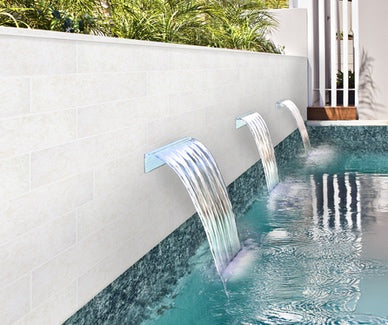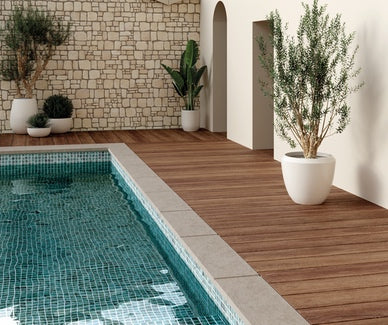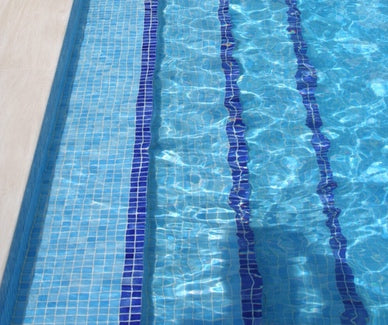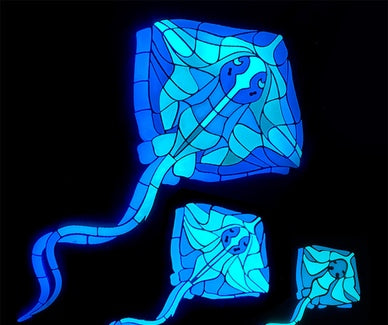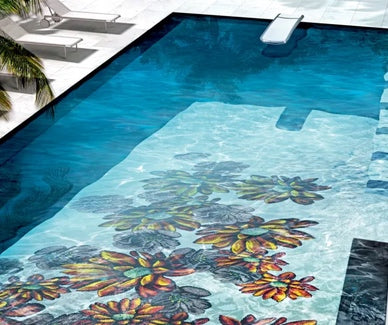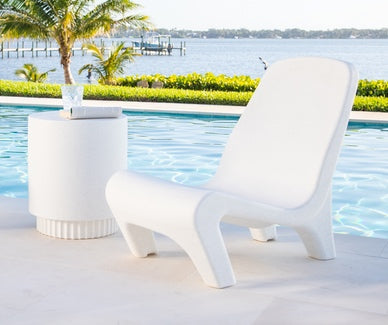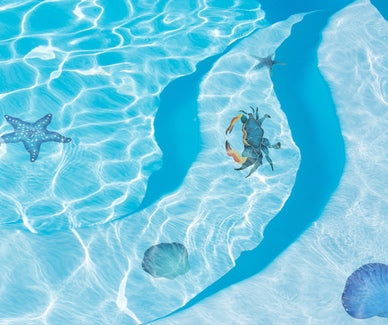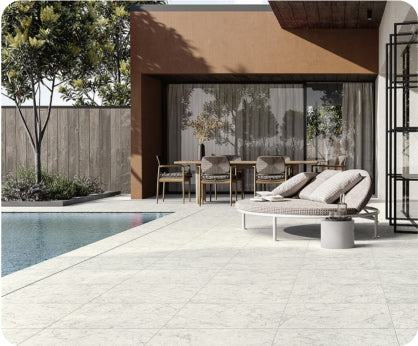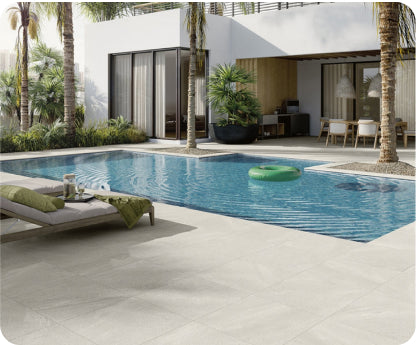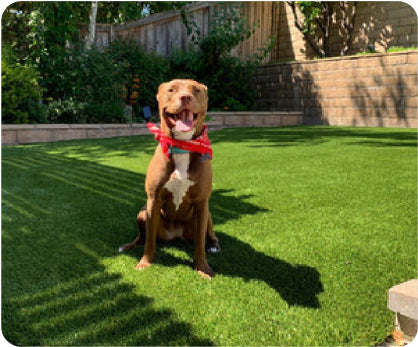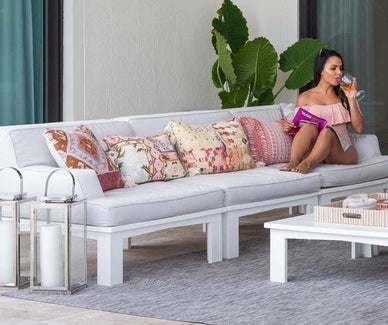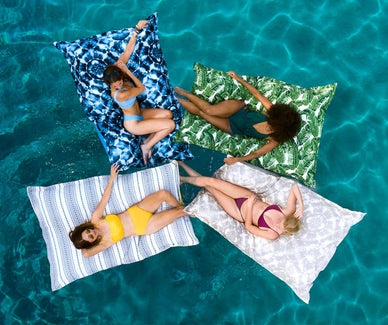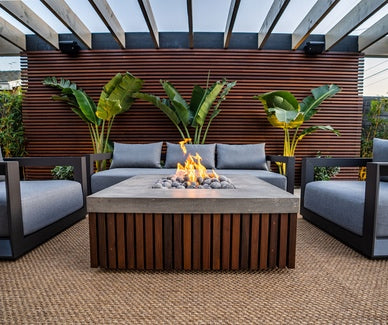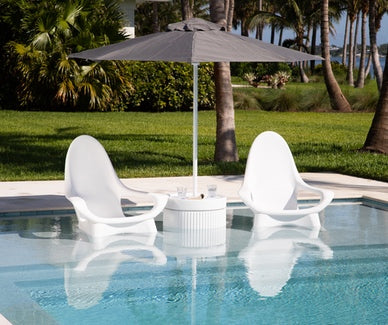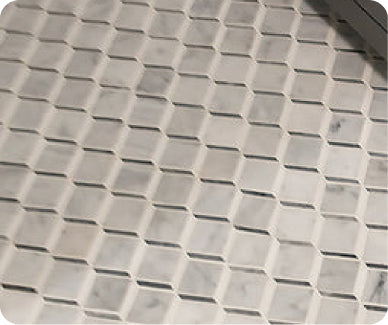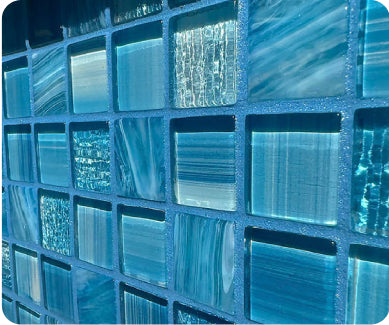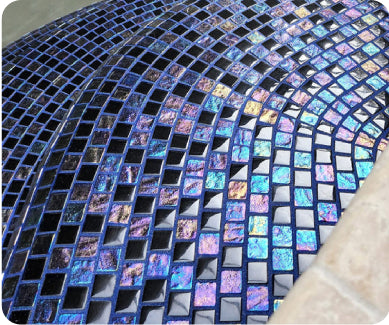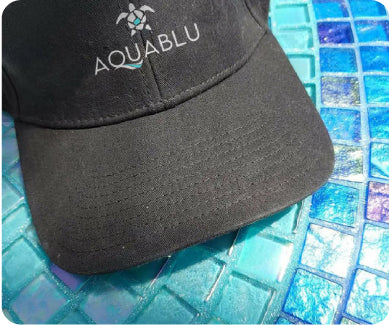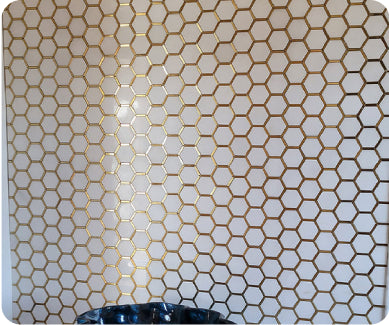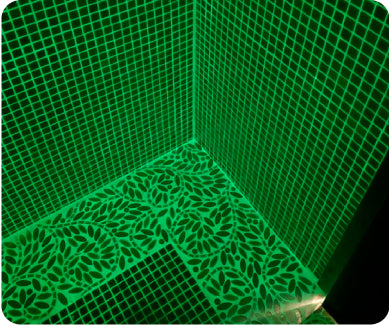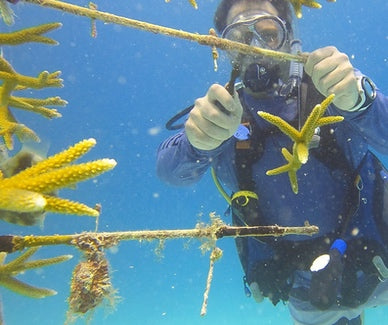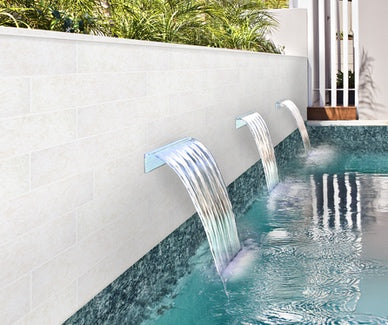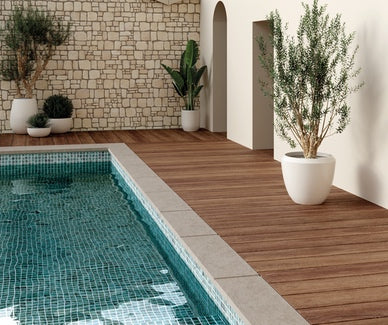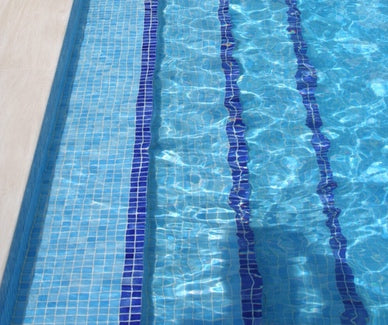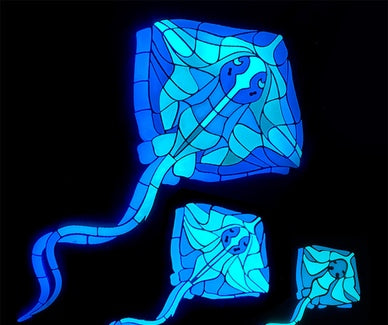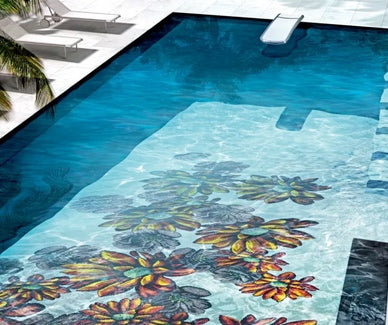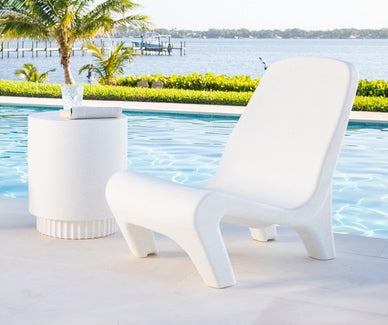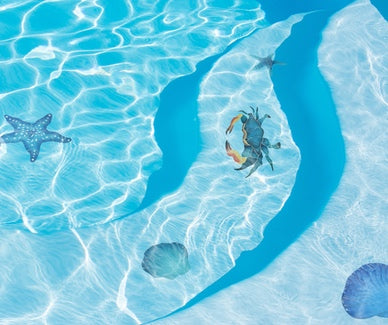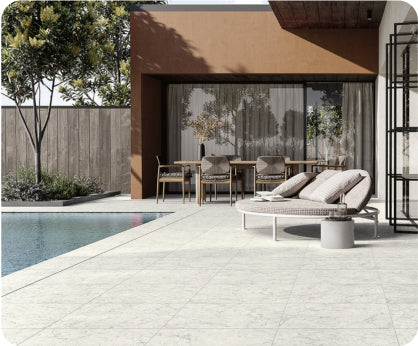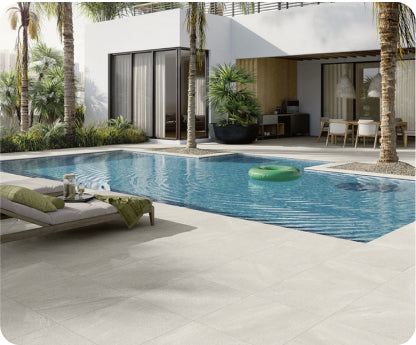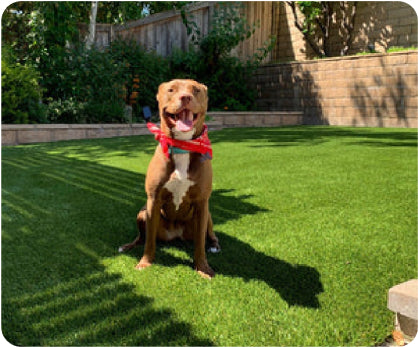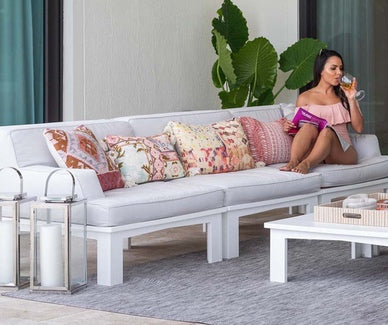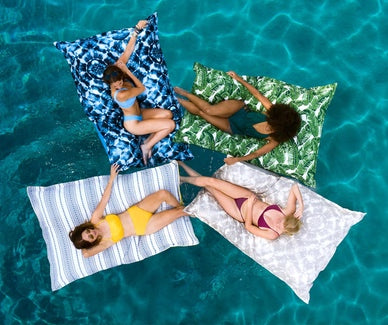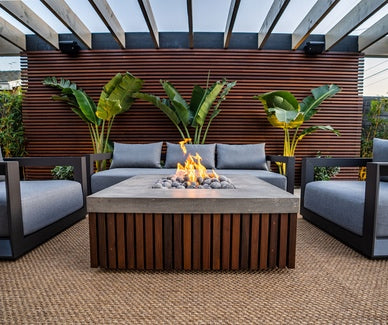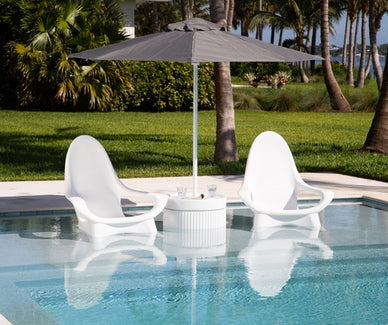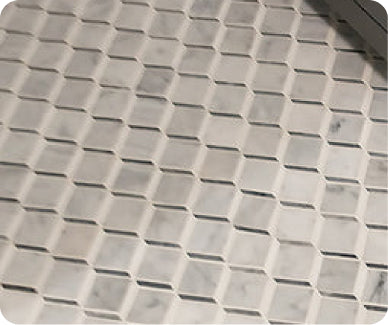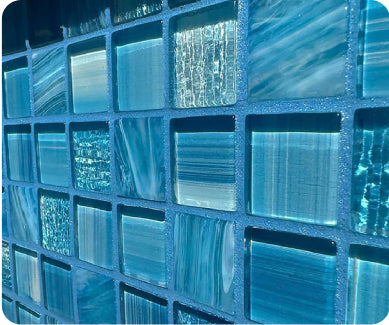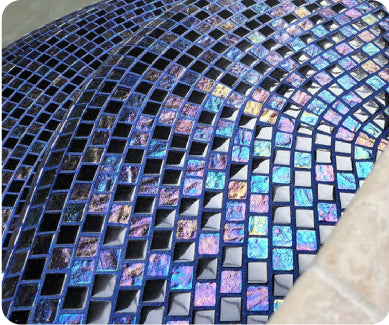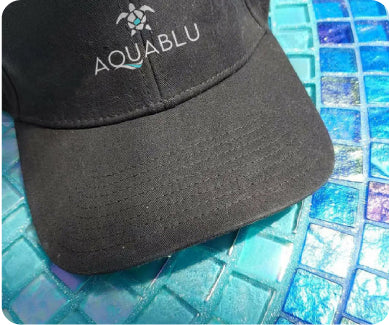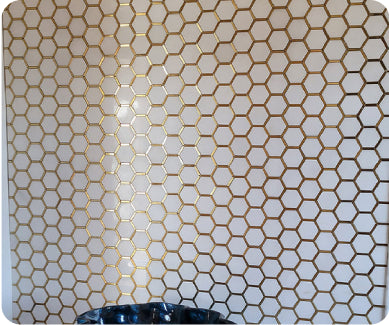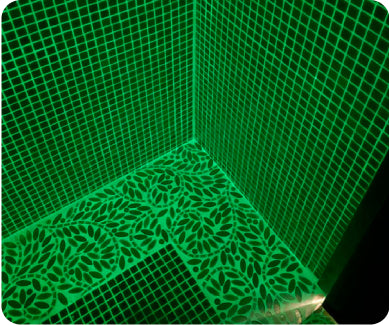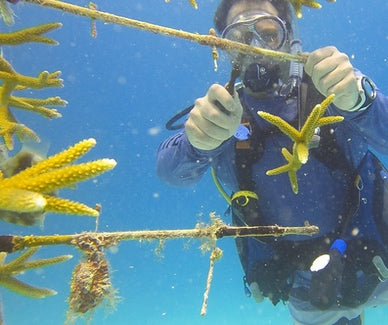Concrete Pool Finishes: Plaster, Aggregate, or Tile?

Concrete is a porous substance. If you were to build a concrete swimming pool entirely of concrete it probably would leak a lot of water.
The way you resolve this issue is to add an interior surface, which has an enhanced resistance to water permeation – all the while keeping in mind that the surface of your pool can change your pool’s fundamental look.
Whether you’re building a new swimming pool or refurbishing an old one, a lot of thought should go into your choice of interior surface finish. The three main options for a concrete pool finish are plaster, aggregates or tile.
For many, cost is the overriding factor in determining the type of interior surface. In general, the cost of resurfacing a concrete pool depends on your region of the country, the size of the pool, and the material you choose.
Typically northern states are more expensive than southern ones such as Florida. But you can figure a plaster finish at around $3.60 to $4 per foot. Aggregate material on the other hand is a little more expensive at $4.75 to $5 per foot.
The most expensive and luxurious interior surface is glass tile, which may cost from $30 to $50 per foot including installation. But before you write off glass mosaic tile as an interior finish, read on regarding the details of each kind of concrete pool finish:
Plaster

Pool plaster is a ¾ inch layer of dense mortar applied to the entire interior surface of a concrete pool. While there are nearly 200 proprietary mixes that have special sounding names, in reality, plaster is basically Portland cement and sand mixed together then troweled into the pool.
Plaster is one of the most used pool finishes and has been around since the 1960s. This surface is hard, yet smooth and appears white in color. This can cause your pool water to appear bright, clean and light blue. Many people feel that plaster has a classy, simple look that is a great surface for your first pool or if you are on a budget.
Plaster pool finishes can also be dyed different colors. So a plaster interior surface can play into your overall design scheme.
On the down side, plaster does require a bit more maintenance and care than other surfaces if you want it to last as long as possible. It also exhibits stains more often than the other surfaces due to it being more porous in nature. This surface especially accommodates algae, which means the plaster requires surface maintenance weekly as well as acid washing every three to five years.
And while plaster is the least expensive interior surface, it also has the shortest life span – something like five to 10 years.
Pro tip: To add a little fun and flair to this kind of pool finish, consider adding some pool mosaics before the plastering. They are easy to install and really "pop" against a white, plaster background!
Aggregate

Aggregate swimming pool finishes have been growing in popularity over the last few decades. Some sources claim they have taken the top spot from pool plaster as the most desirable pool finish option.
Aggregate pool finishes contain river pebbles, stones, ceramic-coated crystals or glass, which are combined with Portland cement-based pigmented plaster and applied pneumatically. These finishes can be exposed or polished. Exposed aggregate is left whole, which provides a bumpier texture. The polished aggregate is generally preferred because the aggregate is polished flat, which makes the texture smooth and easier to walk on.
Pool owners who go the aggregate pool finish route do so because they desire an interior pool surface that’s durable and also has visual appeal. Aggregate finishes are also more resistant to pool chemical imbalances than plaster finishes and last much longer. Exposed aggregate pool finishes have been shown to have a life span of between 15 and 20 years.
While a little more expensive than plaster finishes, aggregate interior surfaces have few problems, although there are reports of glass bead aggregates fading and discoloring within six years. As with both options, a band of waterline pool tile is commonly used to add design and function.
Tile

Glass mosaic tile has revolutionized the way builders finish pools and spas. Elaborate designs, shimmering colors, and an extensive array of possibilities greet homeowners hoping to turn their projects into jaw-dropping achievements. Today, all-glass tile swimming pool designs are a popular request.
Glass pool tiles are made of silicate glass material, which manufacturers use to create a variety of products. Glass tiles are generally smaller than ceramic or stone options, commonly measuring two square inches or less, but they come in a variety of colors, textures and transparencies – ideal for creating a specific design, look or feel for your pool.
When installed properly, glass tile represent the most durable of all swimming pool and spa interior surfaces. Glass mosaic tile is also resistant to chemical corrosion, impervious to liquids and vapors, resistant to fading, staining and discoloration. And, unlike plaster or aggregates, glass tile surfaces can retain their appearance and surface integrity indefinitely.
Aesthetically, a glass tile pool offers a modern look. Beachy, iridescent glass mosaics are a great choice for pool designs due to their sun-reflecting shine and, typically, ocean-inspired coloring. Take a look at a glass tile pool and see how it brightens up the entire backyard.
For environmentally proactive pool owners, it’s nice to know that many types of glass pool tile are created from recycled products.
Painting
There is a fourth method for swimming pool finishes – painting the concrete finish. This initially sounds like the least expensive method, however, pool paint is not cheap. You can expect to spend over $2 per square foot. And it’s not unusual to have problems such as the pool paint peeling or bubbling up. There’s also considerable prepping involved, and you normally have to wait at least two weeks for the paint to cure.
-------------
Want to know more about concrete pool finishes? Or maybe there’s something else on your mind. Talk to one of our experts. You can call us at (800) 971-1442 or fill out our contact form. You can visit our website at https://www.aquablumosaics.com/.

